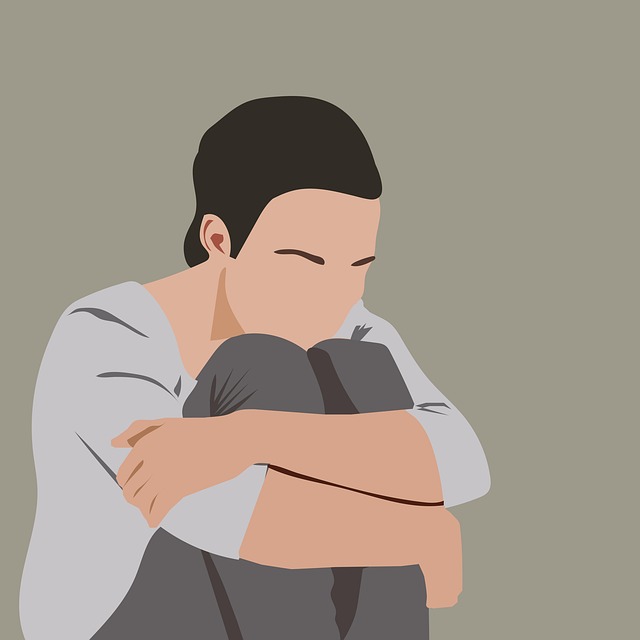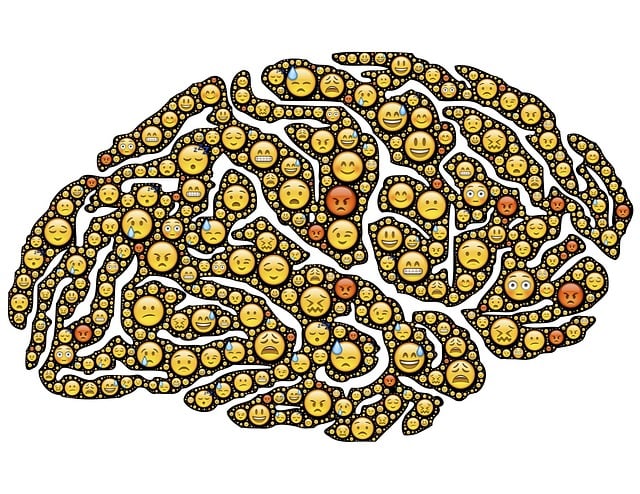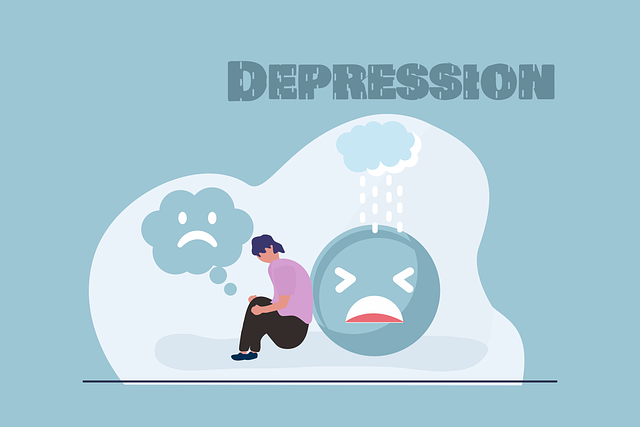Anxiety, a common issue in Arvada, can be managed through various resources offered by the community. Stemming from triggers like life changes and trauma, anxiety disorders are addressed using cognitive-behavioral therapy (CBT), mindfulness meditation, and educational programs focusing on stress management. These initiatives aim to improve mental wellness, especially for those with bipolar disorder, by providing specialized Arvada Bipolar Disorder Therapy. Lifestyle changes promoting balance, along with coping strategies like Social Skills Training, build resilience and reduce anxiety symptoms, ultimately enhancing quality of life.
In today’s fast-paced world, anxiety is a common challenge affecting individuals across various walks of life. This article explores comprehensive strategies for managing anxiety, offering valuable insights for those seeking relief from daily stress and fear. From understanding the root causes, including common triggers like social situations or health concerns, to delving into effective therapy approaches like cognitive behavioral therapy (CBT), we provide a roadmap to overcoming anxiety. Additionally, discover lifestyle changes tailored for chronic anxiety management, emphasizing self-care and resilience building. For those in Arvada seeking support, this guide highlights Bipolar Disorder Therapy as a potent tool for navigating anxiety’s complexities.
- Understanding Anxiety and Its Impact on Daily Life
- Common Triggers for Anxiety Disorders
- Effective Therapy Approaches for Anxiety Management
- Lifestyle Changes to Combat Chronic Anxiety
- Building Resilience and Coping Strategies for Anxiety Relief
Understanding Anxiety and Its Impact on Daily Life

Anxiety is a natural response to stress, but when it becomes overwhelming and persistent, it can significantly impact daily functioning. Many individuals struggle with anxiety disorders, which range from generalized anxiety to more severe conditions like Bipolar Disorder, affecting their ability to manage daily tasks and maintain mental wellness. Understanding these feelings and their root causes is the first step towards effective management.
In Arvada, there are various resources available to support those dealing with anxiety. Mindfulness Meditation has been proven to be a powerful tool in reducing anxiety symptoms by promoting relaxation and fostering a sense of calm. Additionally, community outreach programs play a vital role in raising awareness about mental health issues, providing support networks, and encouraging individuals to seek professional help when needed. These initiatives contribute to creating an environment where seeking therapy for anxiety or Bipolar Disorder is more accessible and accepted.
Common Triggers for Anxiety Disorders

Anxiety disorders can be triggered by a variety of factors, and understanding these triggers is essential for effective management. For some individuals in Arvada seeking bipolar disorder therapy, stressors such as major life changes, financial difficulties, or relationship problems can significantly impact their emotional well-being. These external factors, when combined with genetic predispositions or past traumatic experiences, can trigger anxiety symptoms.
Trauma support services and empathy building strategies play a crucial role in addressing these triggers. By learning effective emotional well-being promotion techniques, individuals can develop coping mechanisms to navigate stressors more successfully. This proactive approach not only helps manage existing anxiety but also fosters resilience against future episodes, ensuring a higher quality of life.
Effective Therapy Approaches for Anxiety Management

Anxiety management is a multifaceted approach that often involves therapy as a cornerstone. One effective method, particularly for individuals in Arvada dealing with anxiety-related conditions like bipolar disorder, is cognitive-behavioral therapy (CBT). CBT helps to identify and change negative thought patterns and behaviors contributing to anxiety, offering practical tools for coping. By focusing on the connection between thoughts, feelings, and actions, CBT empowers individuals to develop inner strength and resilience against anxious episodes.
Additionally, mental health education programs designed with a focus on stress management can significantly enhance therapy outcomes. These programs provide valuable insights into understanding anxiety triggers and effective strategies to manage them. Through learning about different relaxation techniques, mindfulness practices, and stress-reduction tactics, participants gain practical knowledge applicable in their daily lives. Integrating these educational components into therapy allows for a more comprehensive approach, fostering better mental health outcomes and improved quality of life.
Lifestyle Changes to Combat Chronic Anxiety

Chronic anxiety can be effectively managed through lifestyle changes that create a more balanced and healthy living environment. Regular exercise, for instance, has been shown to reduce symptoms of anxiety by promoting the release of endorphins, which act as natural mood elevators. Incorporating mindfulness practices, such as meditation or yoga, can also help individuals cultivate present-moment awareness and develop better coping strategies. Additionally, maintaining a structured routine with adequate sleep and balanced nutrition supports overall mental well-being.
For those dealing with conditions like bipolar disorder, Arvada Bipolar Disorder Therapy offers specialized support tailored to manage both anxiety and mood swings. Building resilience through these lifestyle adjustments not only enhances anxiety relief but also improves the ability to navigate life’s challenges. This holistic approach, combined with professional guidance, can significantly improve quality of life and foster a greater sense of control over anxious symptoms.
Building Resilience and Coping Strategies for Anxiety Relief

Building resilience is a key component in managing anxiety disorders, including those experiencing Arvada bipolar disorder therapy. It equips individuals with the ability to adapt and bounce back from challenging situations, reducing the impact of stressful events on their mental well-being. Through various coping strategies, one can enhance their resilience. For instance, Social Skills Training can help improve interactions and build a support network, fostering a sense of belonging and reducing feelings of isolation that often contribute to anxiety. Mental health awareness plays a crucial role; understanding one’s emotions and triggers enables individuals to recognize early signs of anxiety and implement calming techniques effectively.
Confidence-boosting activities are also integral to this process. Engaging in activities that promote self-worth and assertiveness can empower individuals to face their fears and challenges head-on. This could include setting achievable goals, practicing mindfulness, or engaging in physical exercise, all of which have been scientifically proven to reduce anxiety levels. By combining these strategies, individuals can develop a robust coping toolkit tailored to their unique needs, fostering a sense of control and promoting long-term mental health.
Anxiety management is a comprehensive process that involves understanding triggers, exploring therapy options, adopting lifestyle changes, and cultivating resilience. By integrating evidence-based practices, such as those offered by Arvada Bipolar Disorder Therapy, individuals can effectively navigate and overcome anxiety disorders. Through self-awareness, coping strategies, and support systems, managing anxiety becomes a journey of personal growth, enabling individuals to live more fulfilling lives free from the constraints of chronic worry and fear.











